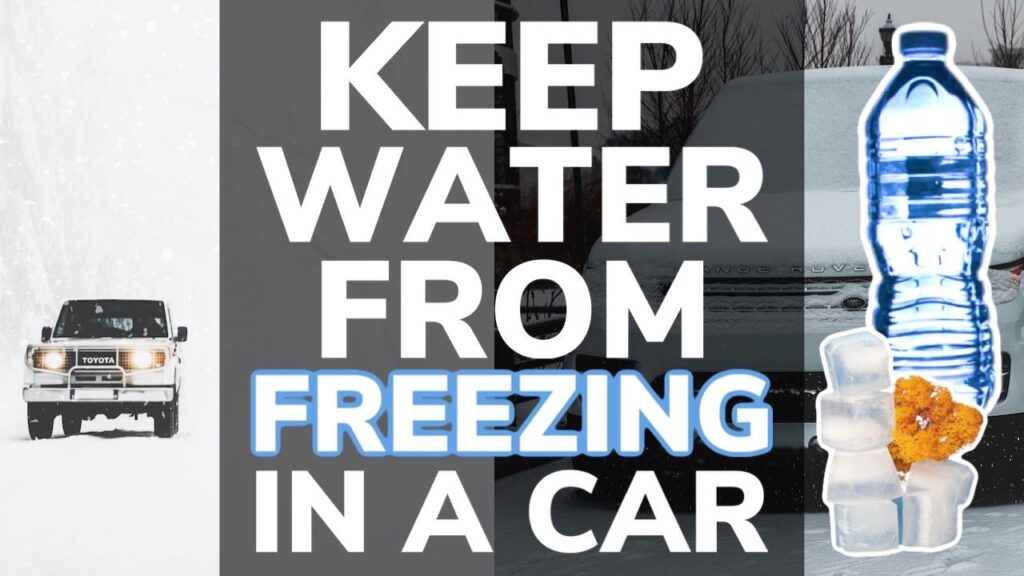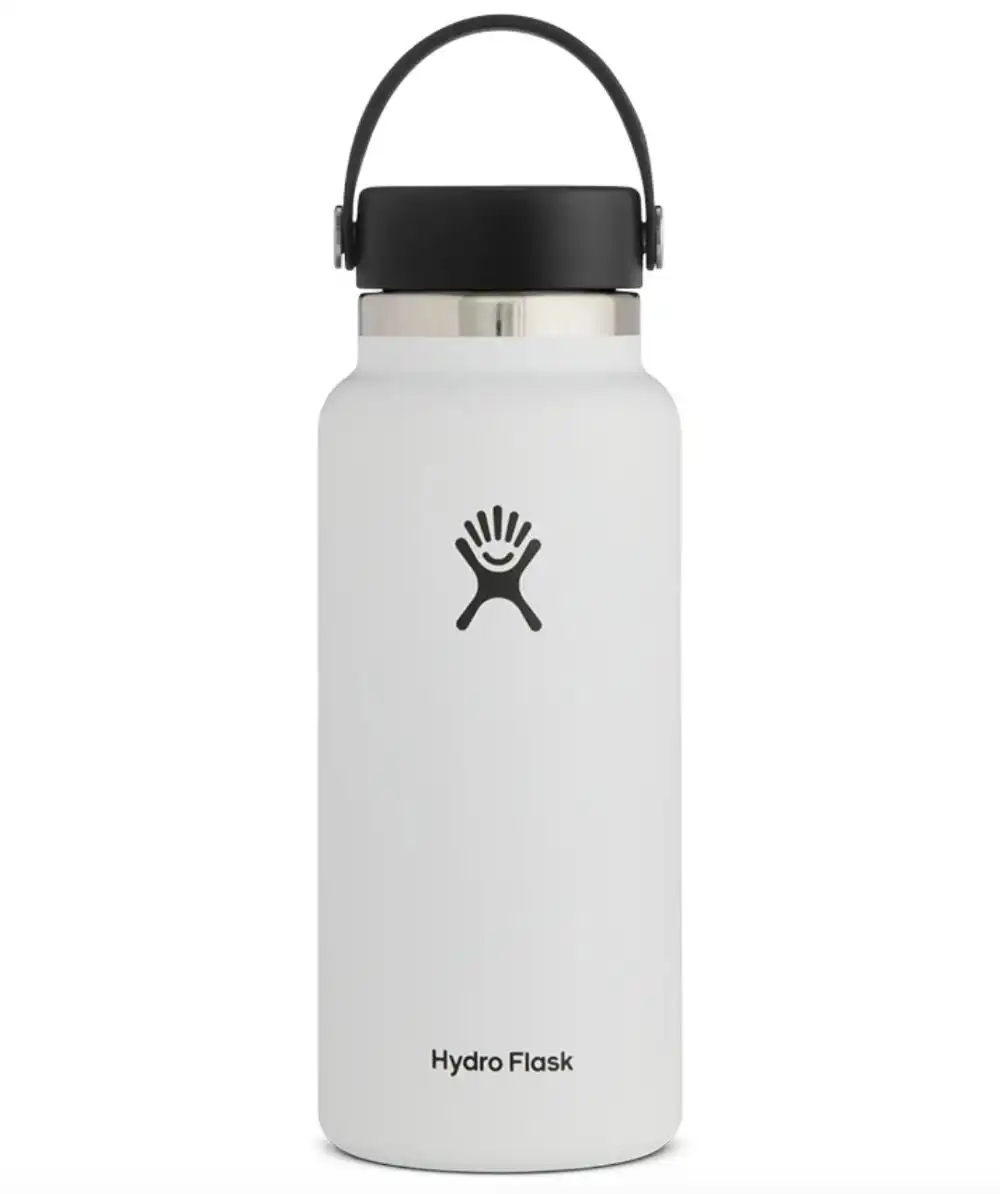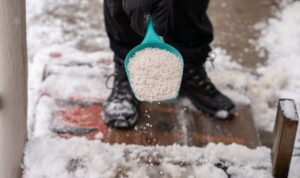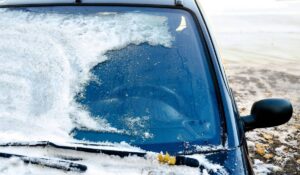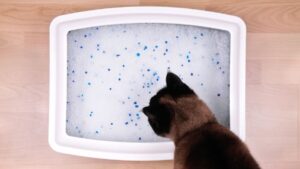In winter, when temperatures get below freezing, water bottles can freeze pretty quickly. If you want to leave your water bottle in the car during the day or overnight keeping it from freezing can actually be quite difficult.
But how can you keep water from freezing in your car in winter so it stays liquid and you can have something to drink?
There are a few different techniques you can use to stop water from freezing in your car and depending on how long you're leaving your water bottle in your car and how cold it is outside will depend on how extreme you need to be.
Start With Warm Water
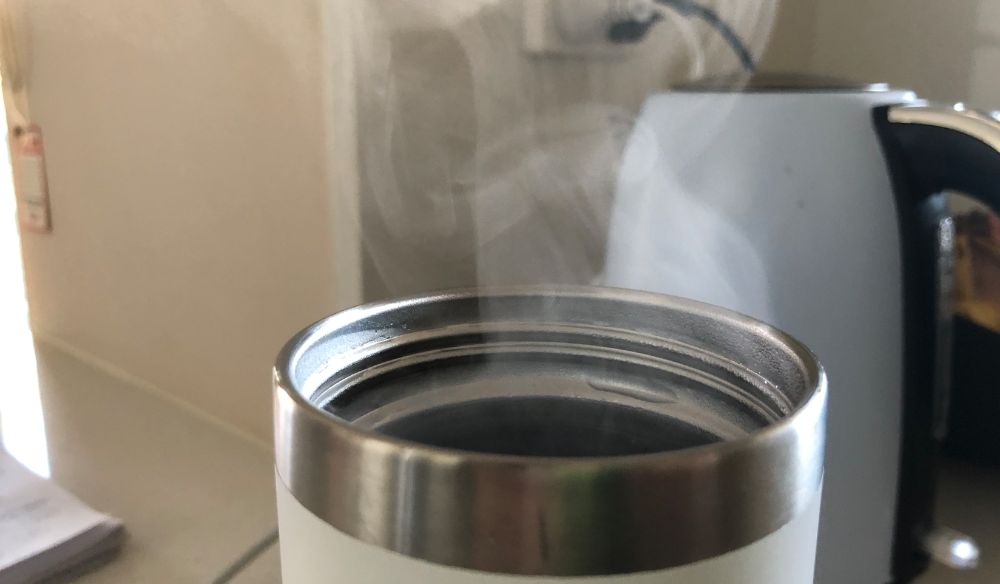
Firstly, no matter what method you're using it's good idea to start with warm water.
When water starts out warmer it obviously needs to cool down a lot more before it reaches freezing temperature and starts turning into a solid.
For plastic bottles I would personally avoid using boiling water and only use lukewarm water. But that's because I'm nervous about chemicals leeching into my water which I know happens at high heats more than low heats. More on plastic leeching at high heats.
For glass, ceramic or stainless steel bottles then starting with boiling water is fine. You just want to make sure you don't shatter the glass by heating it too quickly. So warm it up inside or with some warm water first then add boiling water.
Use Layers. Wrap Your Water In a Towel/Sleeping Bag and Keep It In a Cooler
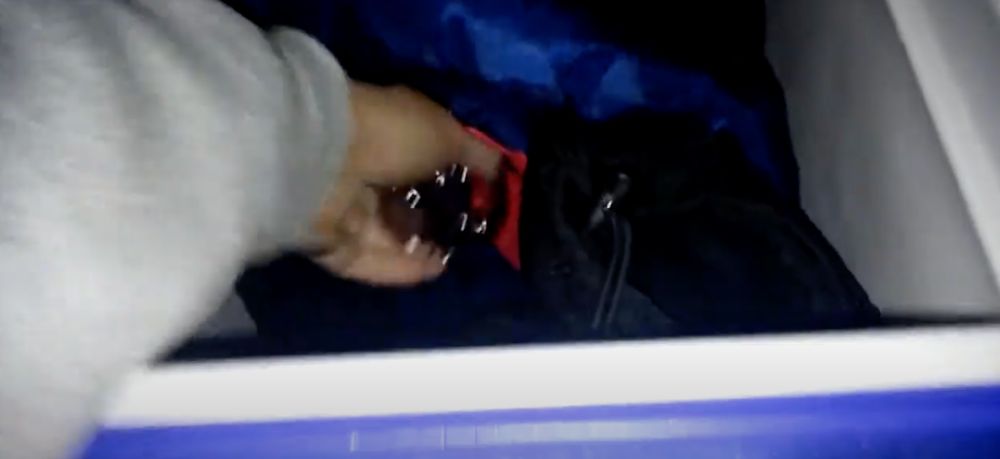
Usually we think of using a cooler to keep things cold, but the insulation in a cooler can also work to keep out extreme cold and to keep things hot.
I've got some great tips on how to keep things hot in a cooler but in this case we are more just looking to stop water from freezing in our car.
Take your water bottles and wrap them in a towel, some clothes or a sleeping bag and then place them inside your cooler and keep the lid closed.
The cooler won't stop your water from freezing for forever, but it'll definitely delay how quickly it freezes so you'll have a lot longer to get back to your car and drink your water.
Mostly Empty Coolers Don't Work Great
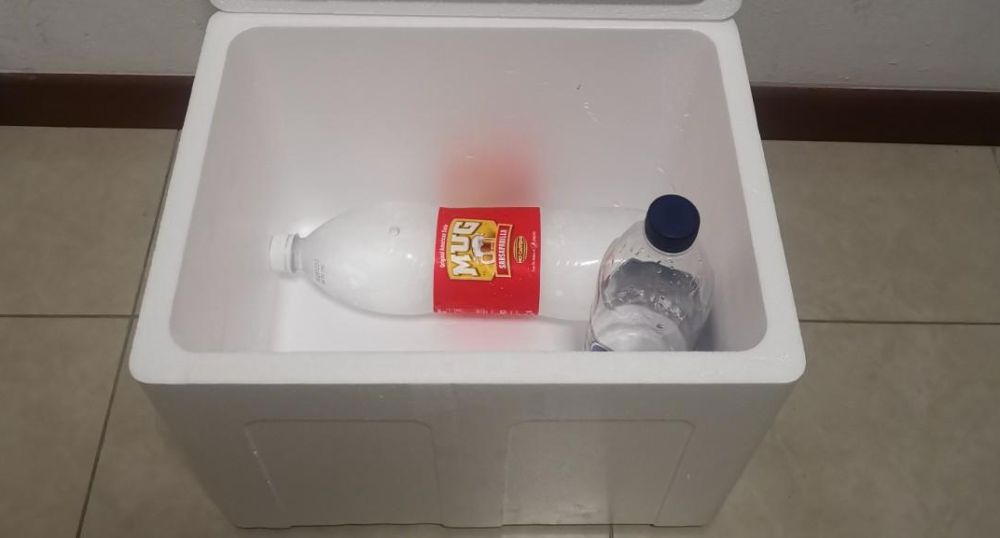
You may just think you can take your large cooler, throw in a couple of water bottles, close the lid and you're good to go right?
Wrong!
Coolers with lots of empty space inside aren't as good at insulating as coolers filled with stuff.
It'll still work better than just leaving it in your car, but the more space in your cooler you fill up the better.
Using extra towels, old clothes, sleeping bags etc to fill up space works really well and your water will stay liquid for longer.
The video below shows the difference between having a water bottle loose in your cooler vs having it wrapped in a sleeping bag.
Add Hot Water Bottles or Hot Bricks
Most people just put their water bottles in their cooler and hope for the best.
But if it's extremely cold outside or you're storing water in your car for an extended period of time then adding extra heating elements will keep your water from freezing for longer.
Fill up a hot water bottle with boiling water or wrap some bricks in aluminum foil and heat them in the oven at 180ºF until hot.
Place these in your cooler (put towels down first so you don't melt your cooler) with the water bottles you want to keep from freezing.
So you're bottles don't end up too hot to drink add a layer of cardboard or towels between your water bottles and the hot water bottle/hot bricks.
The freezing cold air in the car will cool down your bottle while the hot elements stop it from freezing and you should have nice drinking water.
Wrap In Towels, Clothes or A Sleeping Bag If You Don't Have a Cooler
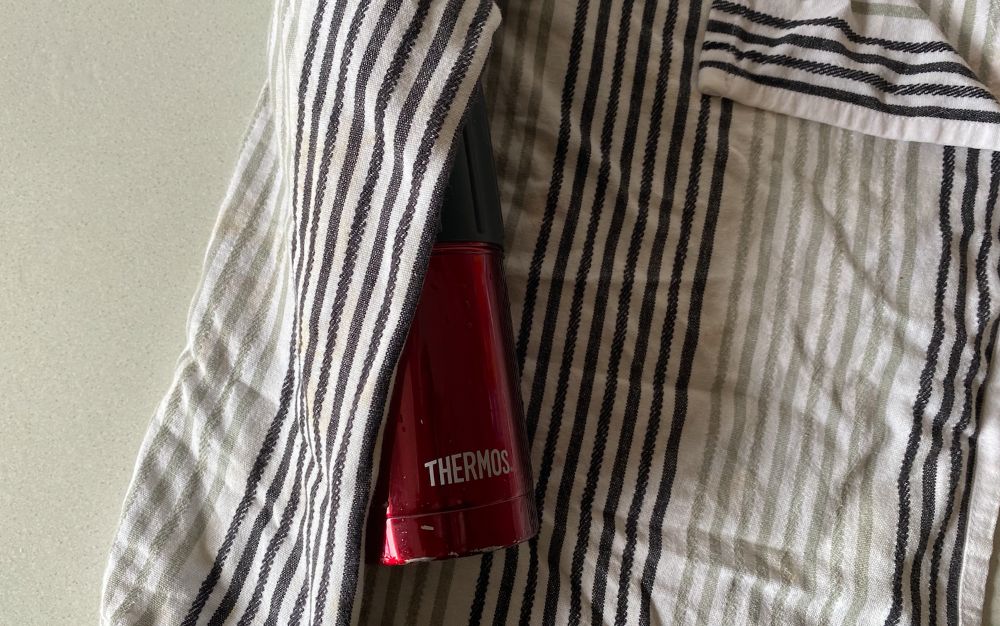
If you don't have a cooler or don't want to use your cooler then simply wrapping your water bottles in a towel, spare clothes or a sleeping bag can be a great way to keep your water from freezing in your car.
Remember a cooler just insulates against the outside temperature. A sleeping bag, clothes and towels do exactly the same thing.
You can even add a hot water bottle or hot bricks and wrap them up with your water so it doesn't freeze.
Just be careful not to melt your sleeping bag or clothes if they don't like high temperatures.
Use a Wide Mouth Water Bottle
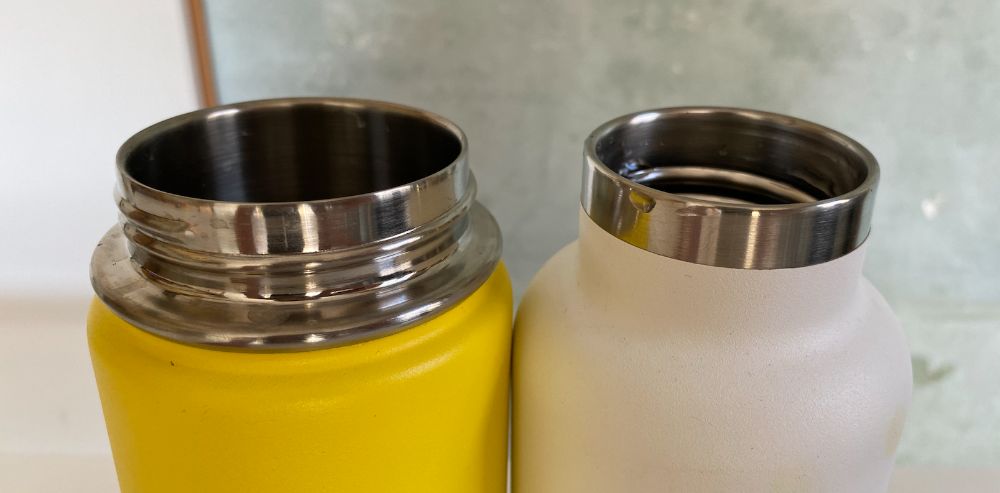
It's a good idea to use a wide mouth water bottle instead of a water bottle with a smaller opening.
That way if your bottle partially freezes it's more likely there will still be some room in the top to drink whatever water is left.
Use a Larger Water Bottle
Larger bottles of water carry more thermal mass that smaller bottles.
A 12 oz bottle is going to freeze much quicker than a 1 gallon bottle. Just like a cup of water can freeze in a matter of minutes but the ocean doesn't freeze nearly as quickly.
So the larger the water bottle you use the longer it will stay liquid for.
Use a Vacuum Insulated Bottle
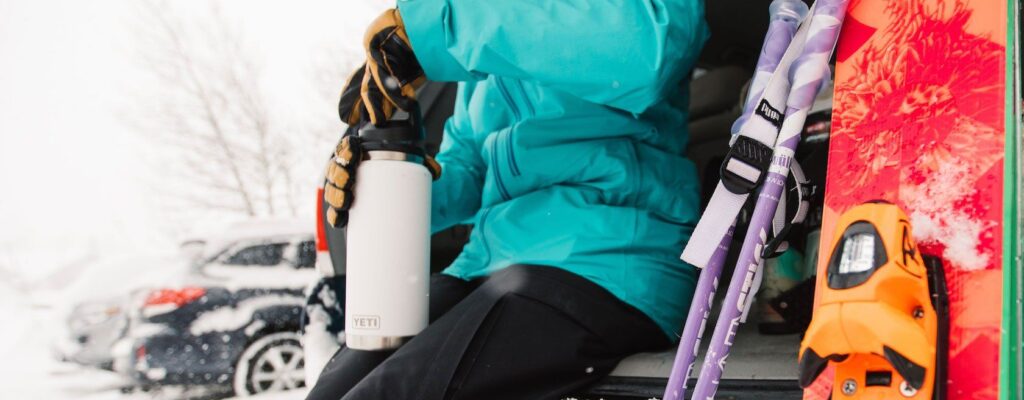
Vacuum insulated water bottles are amazing at keeping drinks hot or cold for an extended period of time.
When you put boiling water in a vacuum insulated bottle it can often stay too hot to drink for 6+ hours, even when temperatures outside are extremely cold.
Brands like Hydro Flask water bottles as well as Yeti water bottles are great at insulating and will keep your water from melting in your car for an extended period of time.
Especially if the water is starting out hot or boiling.
One of the best and most popular water bottles on the market.
Made from kitchen grade 18/8 double walled vacuum insulated stainless steel these water bottles can keep your drinks ice cold for days at a time or hot for nearly 234 hours.
Comes in a variety of fun (and relaxed) colors and backed by a lifetime warranty so you never have to worry about buying another water bottle again.
Warning: You do need to be careful with vacuum insulated bottles because if left too long and water DOES freeze in them it can damage the vacuum insulation.
Read more about why can't you freeze a Yeti or why can't you freeze a Hydro Flask.
So use them if you know you're going to drink the water in time, but if you think the water might freeze it's best to use something less expensive that won't break if the water does freeze over.

